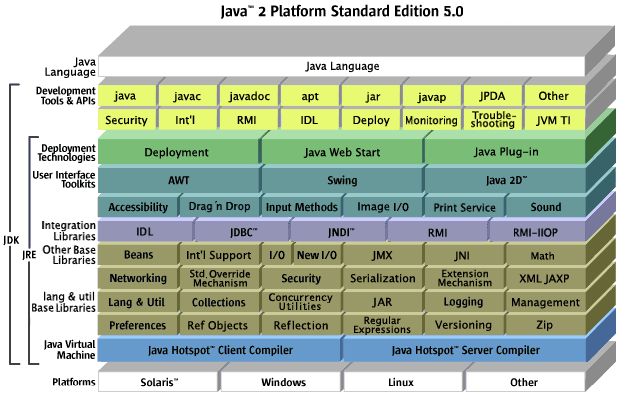|
CSCI 280 Object-Oriented Programming (Java) (a practical and no-nonsense course) School of Electrical Engineering and Computer Science, University of North Dakota Fall 2024
Synchronous Class Delivery

Objectives After taking this course, students are able to achieve the following goals, but not limited to:
Four programming exercises (40% total): 1. User interface —— 10% 2. Input/output —— 10% 3. Finding price —— 10% 4. The lowest price —— 10% Two exams —— 20% each Final exam —— 20% Tentative Schedule Weeks 1, 3 —— Introduction Week 2 —— Programming Exercise I Weeks 4, 7 —— Java basic syntax Weeks 5, 6 —— Programming Exercise II Weeks 8, 9, 10 —— Java data types and control structures Weeks 11, 12 —— Java classes and objects Weeks 13, 14, 15 —— Java object-oriented features Week 16 —— Some other special topics Remark I Definitions, terminologies, and theories will be discussed minimally in this course. Instead practical works and programming knowledge will be emphasized and enforced. Remark II Java may be the most important language, and the only effective way to learn a programming language is practicing, instead of studying concepts or writing some testing programs. No pain, no gain 😂 According to a study, students in computer-science courses learn much more by building large-scale exercises instead of many small-scale test programs, which give fragmented knowledge contrary to solid understanding of the system. Remark IV Remote work is a trend for IT workers. This course also allows you to learn how to do it by using the VPN (virtual private networks) to connect to our Linux server undcemcs02.und.edu, and having the exercises set up at the server and be accessed from the clients.
Instructor’s Qualification The instructor has more than five years’ experience in programming language research, design, and implementation. He designed and implemented a LISP/PROLOG mixed language system for AI (artificial-intelligence) developers including YACC-like software, UNIX-like editor, LISP compiler, PROLOG compiler, heap storage management system, and POPLOG virtual machine for which both LISP and PROLOG compilers generate code by writing about 20,000 lines of C code. Dishonesty Under no circumstances will acts of academic dishonesty be tolerated. Any suspected incidents of dishonesty will be promptly referred to the Assistant Dean of Students. Refer to the Code of Student Life, Appendix B.2: Academic Dishonesty.
Disability
|